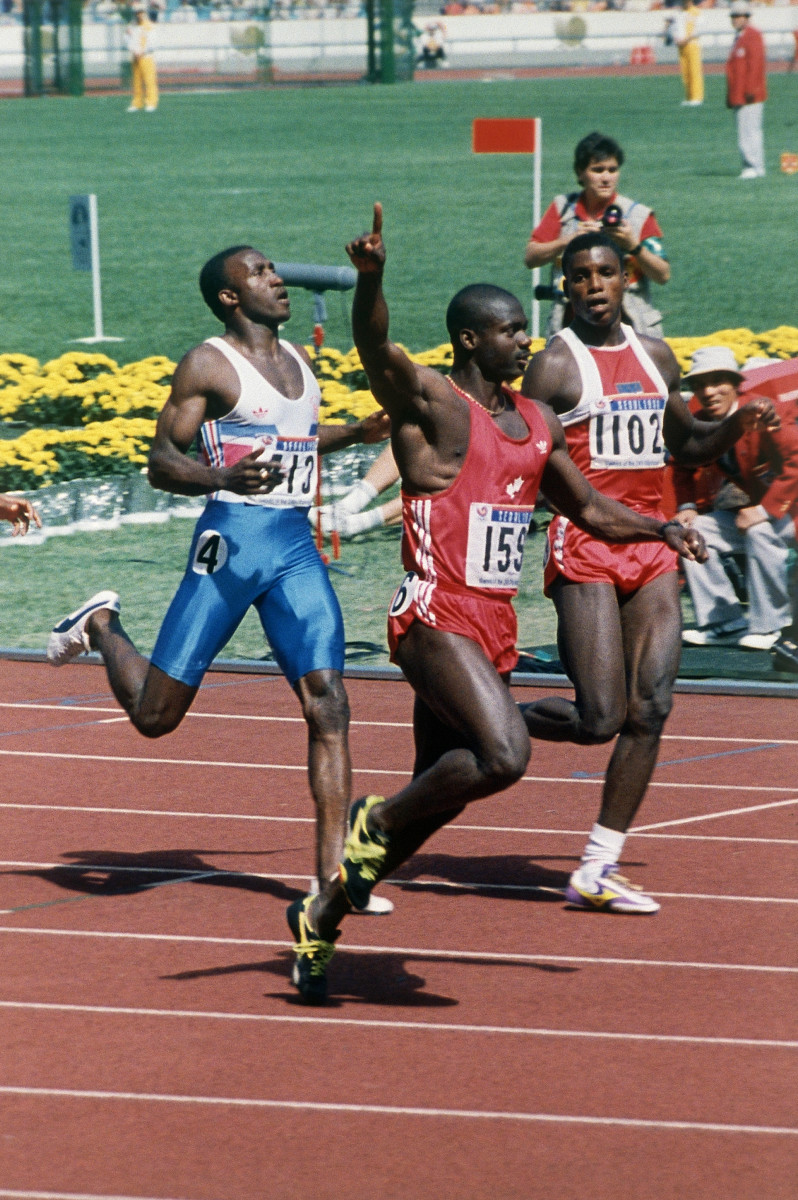Johnson, Jones, Armstrong: Sport's doping hall of shame
LONDON (AP) From Ben Johnson to Marion Jones to Lance Armstrong, the sports world has its own doping hall of shame.
Cheating in the Olympics, world championships, Tour de France, Major League Baseball and other sports has led to a stunning fall from grace for some of the world's biggest stars and disgrace for some of the most powerful nations.
A devastating report issued Monday by a World Anti-Doping Agency panel exposed a deep-seated culture of drug use and state-supported doping in Russia, findings which could lead the country's track and field team to be suspended from international competition, including next year's Olympics in Rio de Janeiro.
The 323-page WADA report is the most comprehensive accounting of widespread doping, but there have been plenty of high-profile drug cases over the years that have damaged the credibility of sport and left fans wondering if what they are seeing is real or a chemically-enhanced lie.
Here are just some of the major doping scandals in sports:
---
BEN JOHNSON
Still considered arguably the biggest scandal of the modern era, the Canadian sprinter was stripped of his gold medal in the 100 meters at the 1988 Seoul Olympics after storming to victory in a world record time of 9.79 seconds. Johnson was busted after testing positive for the steroid stanozolol. Carl Lewis was bumped up from silver to gold. Johnson also had his world record taken away. Johnson and his coach, Charlie Francis, later claimed they resorted to doping to keep up with other top runners using drugs. The Seoul 100-meter final has since been described as the world's ''dirtiest race,'' with several of the eight finalists later testing positive or being implicated in drug scandals.
---
MARION JONES AND BALCO
Jones was the American poster girl of track and field, winner of five medals - including three gold - at the 2000 Sydney Olympics. After positive tests involving former husband and shot putter C.J. Hunter and boyfriend Tim Montgomery, she repeatedly denied doping. But, in 2007, she admitted lying to federal agents about her use of performance-enhancing drugs before the Sydney Games and pleaded guilty in court. She spent six months in jail. The IOC stripped Jones of all five of her Olympic medals. The case against Jones grew out of the BALCO scandal, a federal investigation into the San Francisco Bay Area lab founded by Victor Conte that supplied steroids to athletes. The probe implicated runners Kelli White, Dwain Chambers and Regina Jacobs, as well as baseball sluggers Barry Bonds and Jason Giambi.
---
LANCE ARMSTRONG
Doping allegations dogged Armstrong for years as he dominated the world's greatest cycling race, winning the Tour de France seven straight times from 1999-2005. He repeatedly denied any wrongdoing, saying he had never failed a drug test and won through sheer hard work and resilience. Then came a damning U.S. Anti-Doping Agency report that detailed doping by Armstrong and his teams. Armstrong later confessed to doping in a TV interview with Oprah Winfrey. He was banned for life and stripped of all his titles. Armstrong's downfall overshadowed other cycling scandals, including the1998 Festina affair that was triggered by arrests and raids during the Tour de France, and the Operation Puerto case in Spain involving the seizure of blood bags at a Madrid clinic.
---
TURIN RAIDS
Acting on a tip from the IOC, Italian police raided the lodgings of the Austrian cross-country and biathlon teams during the 2006 Winter Olympics in Turin, seizing blood doping equipment and other substances. Banned Austrian coach Walter Mayer, who was implicated in a blood doping case at the 2002 Salt Lake City Games, fled Italy in the wake of the raids, only to crash his car into a police blockade just over the Austrian border and end up in a psychiatric hospital. No Austrians tested positive in Turin, but the IOC later banned several of the athletes for life.
---
BASEBALL STEROID ERA
The cloud of steroids has hung over baseball, entangling sluggers Barry Bonds, Mark McGwire and Alex Rodriguez, among others. Six of the top 14 on the career home run list have either admitted using steroids, been suspected or been suspended. McGwire admitted in 2010 that he had used performance-enhancers, including in 1998 when he set a single-season record with 70 home runs. As part of the fallout from BALCO, Commissioner Bud Selig commissioned a report from former Senate Majority Leader George Mitchell, and Congress pressured Major League Baseball to toughen drug testing, which began in 2003.
---
RUSSIAN RUNNERS
In 2008, just days before the Beijing Olympics, the IAAF banned seven Russian runners for manipulating doping samples to avoid detection. They were middle-distance runners Olga Yegorova, Tatyana Tomashova, Yelena Soboleva, Yulia Fomenko and Svetlana Cherkasova, as well as hammer thrower Gulfiya Khanafeyeva and discus thrower Darya Pishchalnikova. An undercover IAAF investigation found the athletes signed for urine samples that were not their own. The Court of Arbitration for Sport extended their doping bans until 2011, keeping them out of the 2009 world championships in Berlin.
---
EAST GERMANY
The WADA report on Russia drew parallels with the organized doping in East Germany, where winning gold medals was seen as an ideological victory during the Cold War era. The decades-long program turned the Communist state into a global sports powerhouse. Many athletes later said they were unwitting victims of the program, having been given drugs without their knowledge while teenagers. Many said they suffered permanent health problems because of the steroid use. Many records set by former East German athletes have been discredited.
---
CHINESE CHEATING
China was plagued by a series of drug scandals in the 1990s. Thirty-two swimmers were caught using drugs and other Chinese athletes were stripped of medals. In a crackdown before the 2000 Sydney Olympics, China withdrew 40 athletes and officials from its team. They included six runners trained by famed women's track coach Ma Junren and Ma himself. ''Ma's Army'' was the name of his group of record-breaking female distance runners. He attributed their success partly to a diet including turtle blood soup and other exotic concoctions.



































